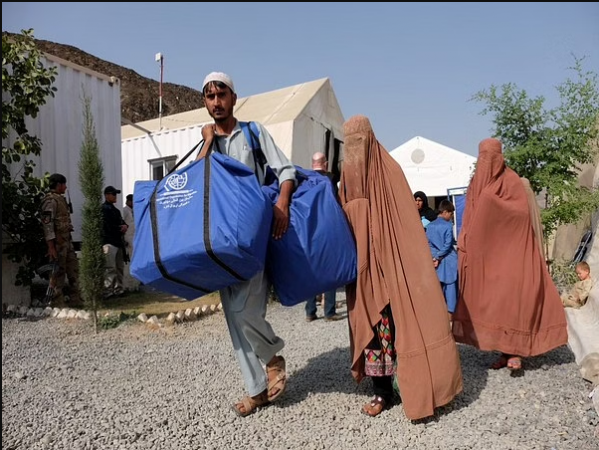
Afghanistan: The UN aid chief said on Monday that countries should resume some development aid for the poor country of Afghanistan, which was suspended after the Taliban came to power a year ago. The United States previously urged Russia and China to put money.
The international community demanded that the Taliban respect human rights, especially those of girls and women whose access to work and education has been restricted by Islamists. As a result, development aid to Afghanistan was reduced.
The nation's top humanitarian official, Martin Griffiths, said: "The population is still growing, poverty is getting worse, and the real authorities don't have the money to invest in their future. We can see some development. Support needs to be restarted." United Nations Security Council.
According to Griffiths, six million of Afghanistan's 39 million residents are at risk of starvation and more than half are in need of humanitarian aid. He said that without proper care, more than a million children "are estimated to suffer the most severe, life-threatening form of malnutrition."
The real rulers of Afghanistan should also contribute. When it is most needed, humanitarian aid is slowed by bureaucratic sanctions and procedures. Women humanitarian aid workers should be given the freedom and security to do their jobs. Additionally, girls should be allowed to complete their education, he said.
The Taliban is still under international sanctions and has not received formal recognition from any foreign government, which the United Nations and aid organizations claim is now disrupting humanitarian operations in Afghanistan.
International banks are wary of breaking sanctions, and over the past year, the United Nations and aid organizations have struggled to get enough money into the country.
Humanitarians have donated more than $1 billion in cash to support program delivery, but Griffiths said liquidity and banking crises continue to impact both the provision of aid and the daily lives of Afghans.
In an effort to ease the economic and aid crisis and avoid Taliban leaders, the United Nations is working to establish a system known as the Humanitarian Exchange Facility (HEF), which will transfer millions of dollars in aid to Afghans. converts into currency. will convert. exchange will be allowed.
Griffiths said the Taliban were "still debating" the plan.
Foreign governments have also deposited billions of dollars in Afghan central bank reserves, most of which are kept in the United States, to prevent them from falling into the hands of the Taliban. China and Russia have sought to release those funds.
US Ambassador to the UN Linda Thomas-Greenfield said: "Any country that is serious about preventing terrorism in Afghanistan will advocate for the Taliban's immediate, unconditional access to billions of assets."
It claimed that due to the absence of effective systems to prevent money laundering and the financing of terrorism, the Afghan central bank was "long ago hollow" and is currently unable to implement sound monetary policy.
In addition to criticizing Russia and China, Thomas-Greenfield said the US was Afghanistan's top aid donor: "If you want to talk about how Afghanistan needs help, that's fine. But we humbly I recommend that you support your claims.
China and Russia rejected his comments.
Afghan female judge files an appeal against the UK Home Office
Afghanistan to rebuild 2,200 houses in quake-hit areas
Pakistan dismisses Afghan minister's allegation of drone attack issue